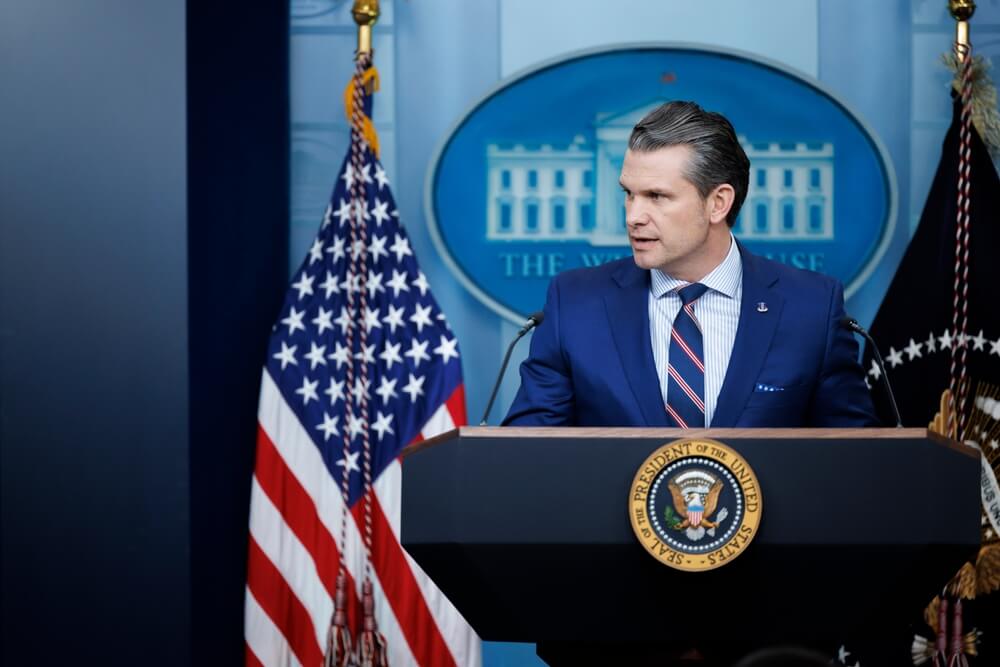Since Donald Trump threatened to go “guns-a-blazing” against Islamic militants in Nigeria a few weeks ago, the West African country was left wondering if it might become a target akin to Venezuela, where the US president seems to be pondering regime change.
Washington appears to have backed off slightly in Nigeria, having signalled a broader strategy to work with Abuja to counter violence, particularly that against Christians, including diplomacy and assistance.
Nigeria’s multiple challenges, including record hunger levels, insurgency, communal violence and banditry, do appear to be deepening, particularly after Washington slashed its aid assistance earlier this year.
But few believe Trump will have the bandwidth and attention span to painstakingly help Nigeria deal with its myriad of crises.
The onus remains on Nigeria’s government, meanwhile, to finally tackle long-standing issues of governance and security to offer all its citizens a brighter future if violence is to diminish.
Kidnappings that garnered international headlines
Last week, the US president escalated his war of words against Nigeria and used the word “genocide” for the first time to describe what Christians were facing. “They’re killing people by the thousands. It’s a genocide. And I’m really angry about it,” he said.
He overlooked evidence pointing to Muslims suffering just as much as Christians from violence.
Last Friday’s kidnapping of 303 children from a Catholic school garnered international headlines, as did the fact that 50 of them managed to escape. Less widely reported was the kidnapping days earlier of 25 students from a predominantly Muslim school. They were subsequently rescued.
A pattern in which armed gangs without religious motivation and seeking ransom money target schools that lack security
No one claimed responsibility for the abductions, but observers say they follow a pattern in which armed gangs without religious motivation and seeking ransom money target schools that lack security.
“There's just a lot of money to be made in this enterprise,” Ikemesit Effiong, senior partner at Lagos-based SBM Intelligence consultancy, told Reuters.
“A gross misrepresentation of reality”: Nigeria rejects Trump’s claims
There are more than 250 ethnic groups in Nigeria, and about 53% of its population of around 235 million are Muslim and 45% are Christian. An insurgency fought by Islamist militant groups Boko Haram and Islamic State West Africa Province (ISWAP) has displaced more than two million people.
Violence and insecurity plague much of northern Nigeria, affecting travel and farming. Mostly Muslim pastoral herders often clash with Christian farmers over resources amid drought exacerbated by climate change.
Nigeria’s government, led by President Bola Tinubu, has faced widespread criticism for failing to control the violence amid its claims to have killed more than 13,500 fighters and bandits over the last two years, while 17,000 have been captured and await trial.
But the government vehemently rejects Trump’s claims that it “continues to allow the killing of Christians.”
Rather than focus on the complicated causes of Nigeria’s crises and subsequent humanitarian emergency, the Trump administration has concentrated on Christian victims
Such claims are “a gross misrepresentation of reality” and “terrorists attack all who reject their murderous ideology - Muslims, Christians and those of no faith alike,” according to a Nigerian government official.
Rather than focus on the complicated causes of Nigeria’s crises and subsequent humanitarian emergency, the Trump administration has concentrated on Christian victims.
Washington appears to be drawing on data compiled by the International Society for Civil Liberties and Rule of Law (InterSociety), a non-governmental organisation that monitors human rights abuses in Nigeria.
A BBC tally found that 3,000 Christians were killed between January and August this year, far fewer than InterSociety’s claim of 7,000.
Furthermore, among those responsible were herders from the Fulani ethnic group, who are mostly Muslim but not necessarily “jihadist” as described by InterSociety.
Trump’s surprise threat and the US approach to Nigeria
Enter Pete Hegseth, US defence secretary, who said, “Yes sir,” when Trump made his surprise threat to carry out military strikes on Nigeria via social media on 1 November. Hegseth has the crusader motto “Deus vult”, a Latin battle cry meaning “God wills it”, tattooed on his arm.
 The US is planning more than just potentially the use of military force after Pete Hegseth met Mallam Nuhu Ribadu, Nigeria’s national security advisor
The US is planning more than just potentially the use of military force after Pete Hegseth met Mallam Nuhu Ribadu, Nigeria’s national security advisor
But the State Department said this week that the US is planning more than just potentially the use of military force after Hegseth met Mallam Nuhu Ribadu, Nigeria’s national security advisor.
The US approach “would span from security to policing to economic,” said Jonathan Pratt, who leads the State Department’s Bureau of African Affairs.
Perhaps Washington remembered that its presence in West Africa is much reduced after the withdrawal of about 1,000 troops from Niger last year, while the largest US military base on the continent is in Djibouti, far away in East Africa, which hosts over 5,000 troops.
Seemingly lower down on Washington’s list of concerns in Nigeria is a UN warning of up to 35 million people facing severe hunger by the middle of next year, up from the 27 million people presently suffering.
The World Food Programme says it can only assist about 900,000 people of the six million people who need help in the north-east following the aid cuts. Its annual budget here is $200 million, almost half of which was provided by the US.
“If we can’t keep families fed and food insecurity at bay, growing desperation could fuel increased instability with insurgent groups exploiting hunger to expand their influence, creating a security threat that extends across West Africa and beyond,” said David Stevenson, WFP Country Director and Representative in Nigeria.
If the hungry people were all Christian, would Washington pay more attention?